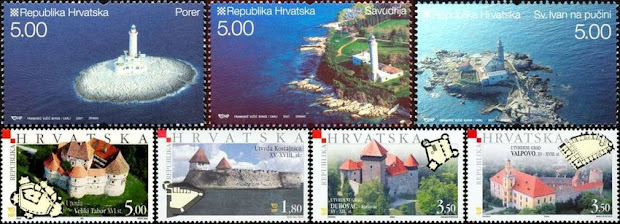After two and a half years, Metro Croatia issued its last edition on Friday. Due to financial problems, Croatia will lose its one and only free paper. Croatia proved to be too small for the biggest newspaper on earth. One wonders why, because earlier this year market research agency Mediapuls revealed fantastic statistics about newspapers and their readers in this country. Some 63 percent of all Croats read daily a newspaper. And we're not talking about the pensioners that make up a large part of Croatia's population. An astonishing 72 percent of young people, age 15 to 19, read a paper every day which places them in the top of Europe. Croatia reverses the almost global downward trend in readership.
It's almost too good to be true. So I think it's not true, although I can't prove it. For reasons unknown to me Croatian newspapers don't disclose information on their sales, so I must rely on my own observations. First of all, you rarely see someone reading a paper in places where you expect people to kill time with news, like trams and trains - and believe me when I say they move slow enough to get bored with the landscape. Also, I doubt most Croats have the financial means to buy a paper everyday. A paper costs almost 1 euro, which is much more expensive than in other countries. Maybe it's the many photographs in full colour that drive up the price, as I don't believe that the few foreign correspondents earn a fortune.
 The general problem is the lack of a newspaper culture, if I may say so. Croatia was for centuries part of the Habsburg empire, which meant among other things that the emperor himself had to grant permission to someone who wanted to start a newspaper. Literacy in nineteenth century Croatia was very low and for literate people some German papers were available. Under communism the literacy rate improved dramatically, so more Croats could read that workers in capitalist countries were starving to death.
The general problem is the lack of a newspaper culture, if I may say so. Croatia was for centuries part of the Habsburg empire, which meant among other things that the emperor himself had to grant permission to someone who wanted to start a newspaper. Literacy in nineteenth century Croatia was very low and for literate people some German papers were available. Under communism the literacy rate improved dramatically, so more Croats could read that workers in capitalist countries were starving to death.
Unfortunately, public and scientific libraries here don't seem to care much about newspapers either. In most libraries you'll search in vain for papers and digitalizing archives has't even started, except for one Istrian paper.
It's almost too good to be true. So I think it's not true, although I can't prove it. For reasons unknown to me Croatian newspapers don't disclose information on their sales, so I must rely on my own observations. First of all, you rarely see someone reading a paper in places where you expect people to kill time with news, like trams and trains - and believe me when I say they move slow enough to get bored with the landscape. Also, I doubt most Croats have the financial means to buy a paper everyday. A paper costs almost 1 euro, which is much more expensive than in other countries. Maybe it's the many photographs in full colour that drive up the price, as I don't believe that the few foreign correspondents earn a fortune.
 The general problem is the lack of a newspaper culture, if I may say so. Croatia was for centuries part of the Habsburg empire, which meant among other things that the emperor himself had to grant permission to someone who wanted to start a newspaper. Literacy in nineteenth century Croatia was very low and for literate people some German papers were available. Under communism the literacy rate improved dramatically, so more Croats could read that workers in capitalist countries were starving to death.
The general problem is the lack of a newspaper culture, if I may say so. Croatia was for centuries part of the Habsburg empire, which meant among other things that the emperor himself had to grant permission to someone who wanted to start a newspaper. Literacy in nineteenth century Croatia was very low and for literate people some German papers were available. Under communism the literacy rate improved dramatically, so more Croats could read that workers in capitalist countries were starving to death.Unfortunately, public and scientific libraries here don't seem to care much about newspapers either. In most libraries you'll search in vain for papers and digitalizing archives has't even started, except for one Istrian paper.





0 reacties:
Post a Comment